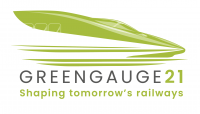This publication – a joint effort between DfT and the northern city authorities – is a welcome start in plotting a Transport Strategy for the North of England.
In addition to options for TransNorth – faster east-west rail connectivity across the North – the strategy sets out ambitions to accelerate the construction of HS2 between Leeds and Sheffield and allow it to be used also by fast regional train services, in addition to the existing proposal to bring forward HS2 to Crewe. The report declares that the existing Northern Hub programme will result in reducing the Leeds – Manchester rail journey times from 49 to 40 minutes and looks ahead to bringing this and Sheffield – Manchester down to 30 minutes and improving rail freight connectivity as well. It sets out ambitious options for improving east-west road connectivity too.
There is also recognition of unfair rail ticket pricing anomalies – with some in the North paying far more than others for similar length journeys – and a commitment to drawing up a zonal fares structure to underpin integrated and smart ticketing across the North. This was proposed in Greengauge 21’s Stepping Stones for a Rebalanced Britain report for the Campaign for Better Transport and has clearly seized the Government’s attention. As the report says: “better travel information and ticketing systems….can expand travel horizons for businesses and individuals [and] multiply…the benefits offered by infrastructure investment alone.”
The major next steps for Government and Transport for the North will be jointly commissioning a series of feasibility studies to allow the prioritisation of options backed by a £12.5m project development budget in 2015/16. The strategy document is silent about development budgets beyond 2016/17 and other major issues going forward will of course be the post general election spending review and Transport for the North’s ability to prioritise within budget constraints. .
The scale of the challenge should not be underestimated. For the first time, for example, there will be a need to compare and contrast and choose between building new and upgrading existing rail lines – responsibilities split between Network Rail and HS2 Ltd currently. Not to mention the need to form a coherent partnership and strategic planning process that brings together investment by multiple city regions (with their newly emerging governance structures) and national transport agencies.
This prescription for the North may have been made in emulation of the evident successes of the transport policies of Scotland to the north and London to the south, but it will have to be implemented without any equivalent directly elected political authority or statutory obligations. As the last year has shown, a great deal can be achieved if there is motivation to do so at the highest levels of Government alongside strengthened partnership working across northern authorities.
